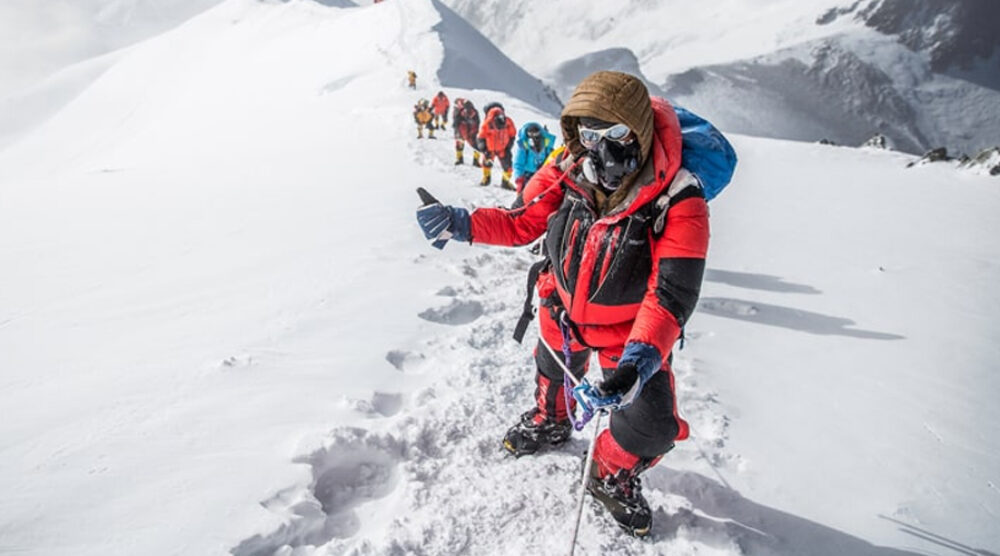Simulation is a form of experiential learning which promotes the use of critical thinking, engaging interaction and self-reflection. Dr Lili Mi from Department of Business Strategy and Innovation used the Leadership and Team Simulation in her Leading Teams course, one of the four courses in the Graduate Certificate of Leadership and Management program. She formed student teams to climb Mt Everest in the simulation. Each team member was assigned a role with conflicting goals and they needed to make collaborative decisions and solve the challenges along the way. The aims of the simulation are to help students understand the nuances of leading effective teams, communication and influence, collaborative decision-making, dealing with conflicts and leading virtual teams. Using simulations in teaching is a great way to inform learning because students experience the activity first-hand, rather than hearing about it or seeing it. They are usually more engaged with each other due to the inter-dependent nature of simulated activities. More importantly, simulations help students take better control of their own learning, build on their knowledge and become an active learner.
Dr Lili Mi ran the simulations effectively following a rigorously structured process to facilitate student reflections. She adopted Kolb’s experiential learning cycle (ELC) and added a simulation preparation step. In the preparation step, she introduced the simulation and their roles. She also included a content structure of the course, the learning outcomes, and how the simulations aimed at achieving these learning outcomes – It is suggested that one of the best practices in online teaching is to create a content structure and constantly referring back to it. In this way, students clearly understand the objectives of the simulation and the resources they could refer to in order to perform well. The second step was concrete experience from Kolb’s ELC, which was running the simulation. She offered two practice rounds and a third round as the assessed one so that students can repeat their learning circles and improve.
The third and fourth steps were reflective observation and abstract conceptualisation from Kolb’s ELC, which were the debriefing sessions after each round of the simulation. Students were asked to first run a debrief reflection by themselves prior to the debriefing sessions in class because a combination of student-led and lecturer-led debriefing would maximise active learning. In particular, Dr Lili Mi led the debriefing sessions focusing on reflections on team leadership concepts and the learning outcomes of the simulation. She noticed students tend to organise another debrief session for improvement solutions before the next round. The last step is active experimentation from Kolb’s ELC. At this step, students actively implemented their initiatives on, for example, information-sharing, communication norms, collaborative decision-making and establishing a clear team goal. The experiential learning cycles went on to the second and the third rounds. Students got the opportunity to repeatedly observe their practice and performance, and reflect on lessons learnt and how to improve.
The results showed a clear learning curve from students and great improvement they’ve made—from 69/100 and 76/100 in the first round to 91/100 and 94/100 in the third round. Note that the third-round simulation had more difficult challenges than the practice rounds. The simulation used in the Leading Teams course was very welcomed by students as evidenced by students’ feedback on the SET survey:
“Really enjoyed this exercise and I managed to build up some skills in leadership and excel as a result, so it’s been especially beneficial!”.
“This course was great from the start to finish. Lili and Brad designed the delivery of the content in a great way…. Everest group activity as an assessment was innovative and actually made me learn more.”
“The lecturer was well-informed about the content and very inclusive and respectful of students. The Mt Everest simulation was an excellent strategy for seeing in action the strategies and theory learned during the course.”
“The knowledge of teams and leading a virtual team, especially under crisis. The simulation is brilliant.”
“One thing I find really effective in this course is the Simulation activity assessment. This assessment gave us the opportunity to apply all theories in a real situation. This is like assessing our ability beyond the academic writing skills. Because I believe that when you are in the corporate world, the information you get from the sources you read for the academic writing is not as important as the chance you get to apply it in the real situation.”






